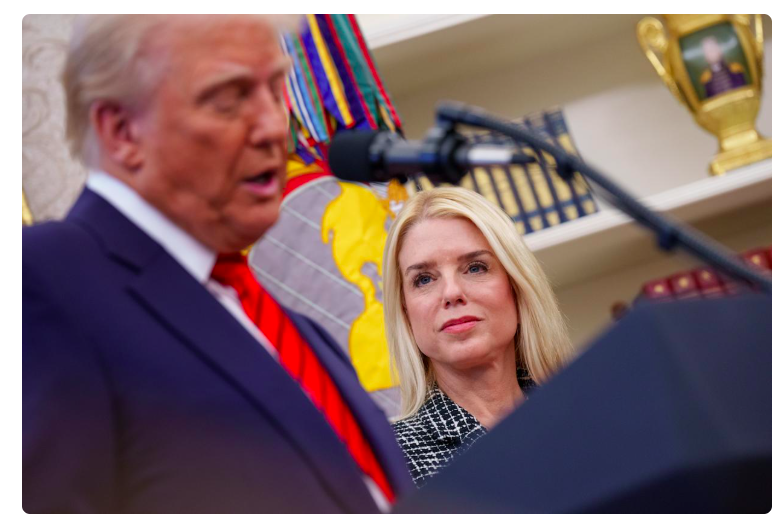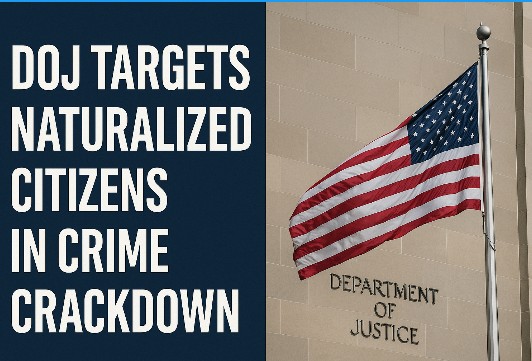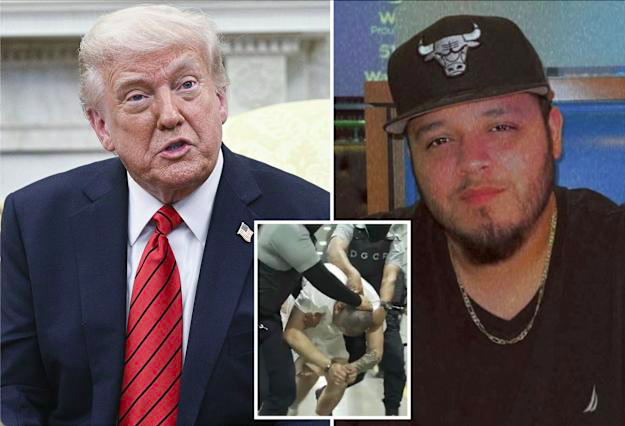Attorney General Removes ABA from Judicial Vetting Process
In a decisive move to restore impartiality in the federal judicial nomination process, Attorney General Pam Bondi announced that the Department of Justice (DOJ) will no longer engage with the American Bar Association (ABA) for evaluating judicial nominees. This action underscores longstanding concerns about the ABA’s perceived liberal bias and its influence on the judiciary.
In a letter addressed to ABA President William Bay, Bondi stated, “The ABA no longer functions as a fair arbiter of nominees’ qualifications, and its ratings invariably and demonstrably favor nominees put forth by Democratic administrations.” Consequently, the DOJ will cease providing the ABA with non-public information about nominees and will not require nominees to participate in the ABA’s evaluation process.
Our Memorial Day Sale is STILL ON! Get 25% Off Sitewide with Discount Code: MEMORIAL25.
Includes FREE Shipping in the USA. https://GetZStack.Com
This decision builds upon previous actions by Republican administrations. In 2001, President George W. Bush ended the practice of giving the ABA advance notice of judicial nominees, citing concerns over the organization’s impartiality. President Trump reinstated this policy in 2017 during his first term. Now, under Bondi’s leadership, the DOJ is further limiting the ABA’s role by denying it access even after nominations are announced.
Conservatives have long criticized the ABA for its alleged bias against Republican nominees. During Trump’s first term, the ABA rated ten of his nominees as “not qualified,” fueling claims of partisanship. Notably, the ABA once deemed Justice Clarence Thomas “not qualified,” a decision that has been widely criticized given his subsequent tenure on the Supreme Court.
The ABA’s influence extends beyond judicial evaluations. Its accreditation of law schools has come under scrutiny for enforcing diversity and inclusion mandates, which some argue conflict with recent Supreme Court rulings against affirmative action. In April, President Trump signed an executive order threatening to revoke the ABA’s status as a recognized accreditor of law schools due to these requirements.
The DOJ’s move has been met with support from conservative lawmakers. Senator Chuck Grassley (R-Iowa), Chairman of the Senate Judiciary Committee, remarked, “Since the George W. Bush administration, the ABA has increasingly failed to give all judicial nominees a fair shake, particularly those nominated by Republican administrations. They have also consistently taken partisan stances on political issues and chosen to act like a progressive advocacy organization.”
The ABA has yet to issue a formal response to the DOJ’s announcement. However, the organization maintains that its evaluations are non-partisan and based solely on professional qualifications. Despite these claims, the pattern of unfavorable ratings for conservative nominees has raised questions about the objectivity of the ABA’s assessment process.
Time
This development comes as President Trump continues to nominate individuals to the federal judiciary who align with his commitment to constitutional originalism and the rule of law. Among the recent nominees is Emil Bove, a DOJ official who previously served as Trump’s defense attorney. Bove has been nominated to the U.S. Court of Appeals for the Third Circuit. Other nominees include Kyle Dudek, John Guard, Jordan E. Pratt, Anne-Leigh Gaylord Moe, and Ed Artau for district court positions in Florida.
The Senate Judiciary Committee is scheduled to hold hearings for these nominees on June 4. With the ABA no longer part of the vetting process, the focus will shift to the nominees’ records and qualifications as presented directly to the Senate.
Attorney General Bondi’s decision marks a significant step toward ensuring that the judicial nomination process is free from undue influence by organizations with perceived partisan leanings. By removing the ABA from its privileged position, the DOJ aims to promote a more transparent and equitable evaluation of judicial candidates.
This move is expected to have lasting implications for the composition of the federal judiciary, reinforcing the administration’s commitment to appointing judges who uphold the Constitution and interpret the law without bias.
As the nomination process proceeds, the absence of the ABA’s evaluations may lead to a more streamlined confirmation process, focusing on the nominees’ adherence to legal principles rather than subjective assessments.
The DOJ’s action reflects a broader effort to restore balance and integrity to the judicial system, ensuring that appointments are based on merit and fidelity to the Constitution rather than alignment with a particular ideological agenda.
By challenging the longstanding influence of the ABA, the administration is taking a stand against the politicization of the judiciary and reaffirming its dedication to the principles of justice and impartiality.
This decisive step underscores the importance of maintaining a judiciary that is independent, fair, and committed to upholding the rule of law for all Americans.






